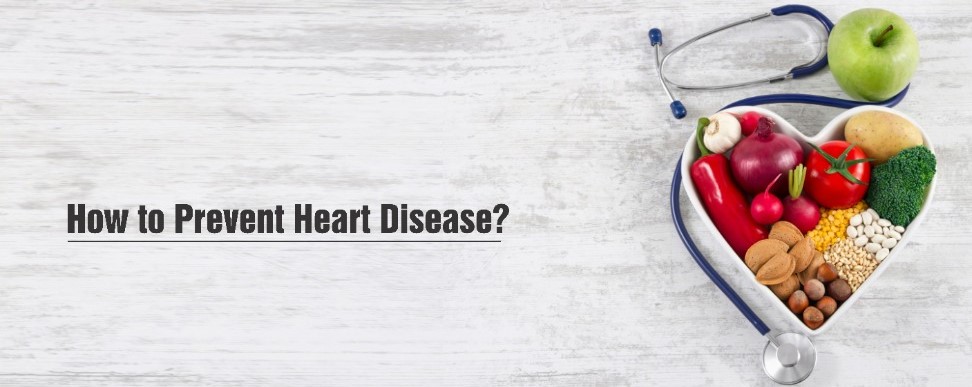Heart health is a major concern for all of us. There are some things about the heart that we know and some myths about it that we believe. In this article, we will discuss all the information that you need to know about your heart health.
Contents: 1. Symptoms of Heart Attack 2. Myths regarding Heart Health 3. How to prevent Heart Disease? |

Symptoms of Heart Attack
Most people think that there are only a set number of symptoms that people come across while having a heart attack such as chest pain and soreness in the left arm. But the heart can warn us in many other ways as well. In most cases, the following symptoms can help you discover if a person is having a heart attack:
- Uneasiness and shooting pain in chest; spreading towards arms, shoulders, neck, jaw, back and stomach.
- Shortness of breath
- Sweating
- A feeling of nausea (found mostly in women)
- Lightheadedness, dizziness and fainting
- Numbness and tingling sensation in the arm (usually left)
- Weakness and fatigue
- Change in mental state (usually in older people)
- Skin growing pale
Also Read: https://healinghospital.co.in/how-diabetes-is-affecting-your-heart/
Myths regarding Heart Health
Myth 1: Having heart disease is the end
Fact: This is certainly not the case. Even after you have been diagnosed with heart disease, you may be able to reverse the harm in many situations. Moreover, your lifestyle plays a critical role in doing so.
Exercising, eating a nutritious diet rich in fruits and vegetables, limiting processed foods, and quitting smoking, etc. can help to prevent heart disease.
Myth 2: A heart disease has a similar effect on men and women
Fact: Many research studies have shown that heart diseases can affect men and women in different ways and they may have different symptoms. Men usually show typical symptoms such as chest pain, breathlessness and sore arm but women can show unusual symptoms such as nausea and indigestion.
Myth 3: Young people are not at risk of heart attack
Fact: One of the most widespread fallacies that people, especially women tend to believe is that they are not vulnerable to heart disease. They believe it is a condition that affects elderly people.
But risk factors such as obesity, Type II diabetes, and hypertension are now showing up in younger men and women too. Therefore, heart disease may develop if these variables become more prevalent at a younger age, which makes taking precautions even more important.
Myth 4: You should not exercise if you have heart disease
Fact: In most cases, doing exercise does not harm a heart patient. Following a heart problem, patients are usually urged to enter rehabilitation and begin exercising within two weeks. There are a relatively small number of persons that have major long-term limits on never exercising.
Exercise slows the course of heart disease and lowers the risk of another heart attack for people who have had one. You may begin with 10 minutes of exercise each day and gradually increase the time. However, it is best to consult your heart specialist in Chandigarh for the right guidance.
To book an appointment, click here: https://healinghospital.co.in/cardiology-department/

How to Prevent Heart Disease?
Coronary artery disease is usually preventable. Following are some lifestyle changes that you should incorporate in your life to prevent heart diseases:
- Eat a healthy diet: Increase your intake of whole grains, chicken, fish, fruits, vegetables and decrease your intake of red meat, saturated fats and sugar. Depending on individual health, a doctor may be able to guide you better on what you should eat and what you should avoid.
Consult the best heart specialist in Chandigarh here- https://healinghospital.co.in/cardiology-department/
- Exercise: It is advised that you exercise regularly to improve your health. The chances of heart attacks increase if you are obese and so adequate efforts should be made to lose weight. However, it is suggested that you talk with your doctor before starting a fitness plan.
- Keep your cholesterol, blood pressure and diabetes in control: High cholesterol, Blood pressure, Hypertension, and Diabetes can increase the risk of having a heart attack. Hence it is recommended that you keep your health in check.
- Quit Smoking: Smoking doubles or more the chances of a heart attack. Hence if you do smoke, it is advised that you quit immediately.
- Limit alcohol: One drink a day is often recommended by doctors to reduce the risk of a heart attack. But if you drink more alcohol daily, it can damage your heart and cause other health problems.
























